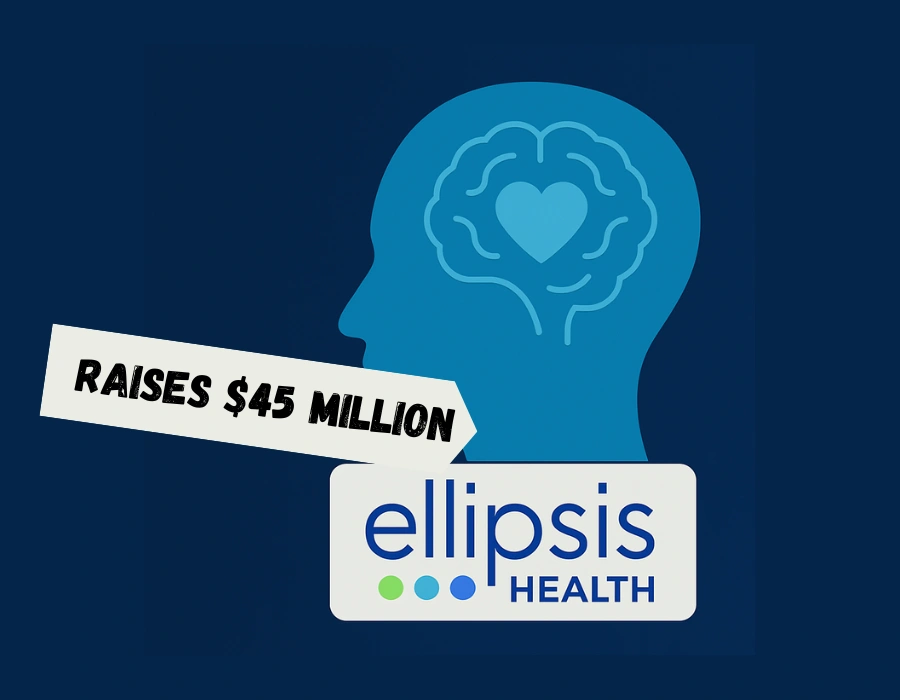In a healthcare world increasingly powered by AI, one startup is standing out—not for how fast it calculates, but for how deeply it listens. Ellipsis Health has raised a massive $45 million Series A‑1 funding round to expand its emotionally intelligent AI platform, signaling a new era in patient engagement. At a time when hospitals face overwhelming staff shortages and patients are slipping through post-care cracks, Ellipsis offers something novel: an “empathy engine” that can detect emotions, track treatment adherence, and escalate high-risk situations—automatically and compassionately.
Founded in San Francisco, Ellipsis Health has built what it calls an AI Care Manager, trained on over two million real clinical interactions. This isn’t your typical chatbot—it’s a voice-based platform that listens to tone, cadence, and content to detect a patient’s emotional state. Named Sage, this technology goes far beyond scripted support. It can tell when someone sounds anxious, frustrated, or confused, and respond in a tone that’s genuinely empathetic. More importantly, it knows when to alert a human care team—bridging the dangerous gap between automation and actual clinical intervention.
This funding round, led by Khosla Ventures, Salesforce Ventures, and CVS Health Ventures, isn’t just a win for Ellipsis—it’s a signal that emotionally intelligent AI is the next frontier in digital health. With healthcare systems worldwide struggling to deliver personalized care at scale, Sage offers a lifeline for both providers and patients.
So what exactly does Sage do? Imagine being discharged from a hospital after surgery. You’re groggy, overwhelmed, and unsure about your medication schedule or warning signs. Instead of waiting days for a follow-up, Sage calls you within hours. It calmly explains your discharge plan, asks how you’re feeling, and notices you’re hesitant. It adapts, slows down, and reassures you. If your tone suggests rising anxiety or physical distress, it flags your case to a human nurse or case manager. It’s like having a virtual nurse who never sleeps—but knows when to call in backup.
The benefits are measurable. According to internal company reports, Sage has helped reduce administrative follow-ups by 60%, enabled 6× faster enrollment in care management programs, and delivered a 4× return on investment for early partners. These numbers are particularly important as U.S. hospitals grapple with rising readmission rates and a growing shortage of human care managers.
One real-world scenario paints a clear picture. Ellipsis CEO Mainul Mondal was inspired by his own experience helping his mother manage diabetes. Like many patients, she often had pressing questions late at night or during off-hours—times when human support wasn’t available. With Sage, those gaps are filled. For example, if a patient mentions skipping meals due to fatigue, Sage recognizes the red flag and gently encourages the right behavior—or loops in a care provider if needed.
The $45 million investment will help Ellipsis take Sage to the next level. The company plans to integrate Sage into electronic health records (EHRs), making the tool more seamless for healthcare staff. Additionally, they’ll customize the platform for specific chronic conditions like diabetes, cancer, and behavioral health, where post-care engagement is both difficult and essential. A portion of the funding will also support clinical research, ensuring the AI meets rigorous healthcare standards for safety, transparency, and ethical use.
Healthcare experts are optimistic. Dr. Hal Paz, a senior advisor with deep ties to digital health innovation, stated, “AI doesn’t tire the way humans do and can work around patients’ and health-plan schedules. Emotion-aware technology is key to next-gen care.” Ash Patel from E12 Ventures adds, “This is what the future of healthcare looks like—empathetic, personalized, and scalable.”
On a larger scale, Sage is addressing a national crisis. The U.S. Medicare readmission rate hovers around 15% within 30 days—a costly and dangerous metric often tied to poor post-discharge care. Studies estimate that better engagement and follow-up support could save the healthcare system up to $30 billion annually. If Sage can meaningfully reduce readmissions by even a small percentage, it would not only save lives but also significantly cut costs for providers and insurers.
Beyond numbers, Sage offers something rarer: a sense of human connection in a system often criticized for its coldness and inefficiency. Patients don’t just need answers—they need to feel heard, understood, and supported. Ellipsis Health is betting that AI, when designed with empathy at its core, can finally deliver that.
In a world dominated by clinical metrics, automation, and alerts, Sage reintroduces something deeply human into healthcare: the ability to listen with care. With $45 million now fueling its mission, Ellipsis Health isn’t just scaling a product—it’s scaling compassion. And if it succeeds, the post-care experience for millions of patients could soon feel far more personal, intelligent, and safe.
